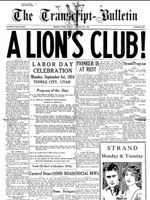
1. To your face, a store-clerk—rather than asking you when he might expect payment for an overdue bill—says that he doubts you have ever intended to pay it. What should your response be?
A. Take out a pistol and threaten to shoot him, unless he immediately apologizes.
B. Ignore the insult as unworthy of notice and take your business elsewhere.
C. Later that day, have your Second ask him for an explanation. If the response conveyed to you is not satisfactory, challenge the clerk to a duel.
D. Immediately beat the clerk with a cane or a horsewhip for his insolence, or have your servant do it.
The point of the duel was not to inflict harm on your opponent, but to preserve your honor. If your honor was threatened and you did not defend it, then you demonstrated that you had none. The clerk was below you in social station and so could not threaten your honor. Duels could only occur between social equals—and gentlemen—who could be expected to rise to a challenge. However, social inferiors could sometimes require discipline or punishment, with the cane or the whip, for their impertinence or rebelliousness.
2. During an evening at a tavern with your long-time acquaintances, the political discussion becomes heated and one of the party intimates strongly but vaguely that the local opposition party leadership (of which you are a member) clings to power because of its willingness to offer bribes. What should you do about it?
A. Nothing at the time and nothing in front of other people. Avoid mentioning it then, but send a respectful letter through a Second to the other person shortly thereafter, asking for an explanation of his actions or words.
B. Call the attention of other witnesses to the insult just after it happens. Leave the scene immediately and send a written challenge to a duel to the person who insulted you.
C. Confront the other person immediately, explaining that he has impugned your honor. Slap his face with a glove or your hand, and tell him that your Second will deliver a demand to him for a duel to settle the matter.
Advocates of the Code of Honor held that its formalities minimized spontaneous escalations of violence, allowing passions to abate and providing opportunities for mediation and reconciliation. Moreover, the Code cautioned against reacting immediately and in front of other people because such an uncontrolled reaction would insult the integrity of the group and would preclude any resolution of the dispute except through a duel. The careful procedures the participants were expected to follow were explicitly detailed. The person who felt insulted and the person whom he thought had insulted him were the "Principals." Each of them found "Seconds," who acted on their behalf at various points in the dispute. The aggrieved Principal was expected to write a polite note to the other Principal (delivered to him by the first Principal's Second), asking for a clarification of his words or actions. If the response did not satisfy the aggrieved Principal, he would write another note, issuing a challenge to a duel, which the Seconds would arrange.
3. You have been sent a note asking for an explanation of your words or actions, but you refuse to respond satisfactorily and repeatedly ignore the challenger's request for an explanation or his later challenge to a duel. What is likely to happen next?
A. You and your friends have a good chuckle over it all and get back to your work, knowing that dueling is unlawful.
B. You send the challenger's note to the local police requesting a judge to issue an injunction against the challenger to stay away from you.
C. The challenger posts a notice in a public place, naming you as a coward who is unwilling to defend his honor. As a consequence, your friends shun you, your business fails, and any political aspirations you may have had are now finished. Your family is shamed by their loss of honor.
The Code of Honor was seen as existing in a society in which the law might act to defend and protect many things, but did not act to defend your personal sense of honor, which could be taken from you if you did not think enough of it to defend it. Dueling was technically illegal in every state in which it was practiced (with the punishment ranging from execution to disbarment from public office), but the law was rarely enforced. Moving the defense of one's honor under the umbrella of the law—through such things as the establishment of libel laws and the use of civil suits—was probably one of the causes of eventually quelling the practice of dueling.
4. You have sent a note, asking for explanation for someone's words that have offended your honor. In a note of reply, the person explains that he was intoxicated when he said what you found offensive. Is that the end of the matter?
A. Yes. Gentlemen may not have been excused by the law from criminal actions that they perpetrated when drunk, but the point of honor with other gentlemen was satisfied when the offender stated that he had been intoxicated.
B. No. In order to satisfy your honor, the offender was obliged, not only to state in reply to you that he was intoxicated, but also to disavow explicitly the insulting words.
Wilson's Code says, "Intoxication is not a full excuse for insult, but it will greatly palliate. If it was a full excuse, it might be well counterfeited to wound feelings, or destroy character." If the initial insult was "You are a liar and no gentleman," the note must not only explain that he was intoxicated when he said that (or that he does not remember saying it because he was intoxicated), but also must state, "I believe the party insulted to be a man of the strictest veracity and a gentleman."
5. Someone strikes you, but then soon apologizes. Is that all that honor demands?
A. Yes. A heartfelt apology, publicly offered, is to be accepted in a spirit of Christian forgiveness. The honor of both parties is preserved.
B. No, that is not enough. Words alone cannot satisfy for a blow offered first.
Wilson's Code says, "As a blow is strictly prohibited under any circumstances among gentlemen, no verbal apology can be received for such an insult; the alternatives therefore are: the offender handing a cane to the injured party, to be used on his own back, at the same time begging pardon; firing on until one or both is disabled; or exchanging three shots, and then asking pardon without the proffer of the cane."
6. Apart from the Principals and their Seconds, who should be present on the ground during a duel?
A. The duelers' families.
B. Members of the local constabulary.
C. The duelers' ministers or priests.
D. Surgeons and their assistants.
E. The general public.
No one else in this list would have been welcome or even tolerated. Dueling was not a family feud, and having family members present would have been distracting, provocative, and cruel. Dueling was conceived as a private matter between gentlemen, so the general public was certainly not invited to witness it. It was also illegal, and so duels were generally conducted in secret, at a time and place such that police or sheriffs would not interfere. And the clergy did not countenance the practice, and so they would not appear on the dueling ground either.
7. If you are the Principal in a duel and you come onto the ground but then refuse to fight or to continue the fight when required—or you leave the site altogether—what should your Second do?
A. Step in and take your place in the duel to uphold your honor.
B. Try to determine from you the reasons for your actions, explain them to the other Principal and Second, and negotiate the best settlement possible.
C. Ask for mercy from the other Principal on your behalf.
D. Say to the other Second: "I have come upon the ground with a coward. I tender you my apology for an ignorance of his character." Then tell him and the other Principal that they may publicly post your name as a coward.
It was felt that if the strongest means to enforce the system were not in place, it would very quickly become nothing but a farce. During antebellum years, the weapons used were often smoothbore, muzzle-loaded, flintlock pistols, which fired a single bullet and had to be reloaded after each shot. The exchange of shots was sometimes lethal, but often not. Depending on the nature of the dispute and the disputants, honor might be "satisfied" on both sides after an exchange of fire in which neither one of the Principals was hit, or in which one or the other were merely wounded or grazed.
8. As Principal, you appear with your Second at the appointed time and place for the duel. The other Principal also appears with his Second and offers you an apology for his insult. Is your honor satisfied?
A. Yes. The whole point is the reconciliation of disputes.
B. No. At this point the dispute cannot be settled with a mere apology, for the other Principal has placed you in a trying situation far beyond the initial insult. The duel must proceed.
"No apology can be received, in any case, after the parties have actually taken their ground, without exchange of fires." In fact, this rule was sometimes breached, and reconciliation was achieved on the ground before shots were exchanged.
9.Is honor satisfied if one or both of the Principals "delopes"—that is, deliberately fires into the air or into the ground to avoid harming each other, or to show their magnanimity?
A. Yes. It is sufficient, and in many cases, laudable.
B. No. This is not admissible.
If the offence and the challenge were not serious in the first place, it should not have come to the point of a duel. If they were serious, the duel must be taken seriously, or in a way that might even suggest that you do not regard your opponent as worthy to shoot at. As a matter of historical fact, however, either one or both of the Principals did "delope" and afterwards counted the matter settled.
10. After an exchange of shots and neither one of the Principals is hit, can the duel be ended with honor served?
A. No, never. The Principals must reload and continue firing until one of them is hit.
B. Yes, always. The exchange of shots proves each Principal's willingness to defend his honor.
C. Yes, sometimes, depending on whether the Challenger feels that his honor has been satisfied.
If neither Principal is hit, the Second to the one who was challenged should approach the Challenger's Second and ask if he is satisfied. He may say yes, if the original insult or injury was not great, but he may say no if the insult was a serious one, in which case the duel must continue until one or the other of the Principals is hit.



 The tobacco plant, however, is quite temperamental and demanding. Even within a single field, the plant would be influenced by the amount of sunlight, minerals, water, and wind. Not all of the field would yield the best tobacco, even in years where there was neither too little rain nor too much. Also, growing tobacco rapidly exhausted the soil's nutrients. Without the addition of fertilizer, three years of growing tobacco was all it took to deplete the soil. The easiest solution was to have available large areas of cheap land so that the grower could shift his fields onto virgin soil when his original plot could no longer sustain his crop. At least in the first decades of the colonial settlements in the area, large tracts of cheap land were precisely what the colonists had, so this, too, made it "easy" for them to cultivate tobacco.
The tobacco plant, however, is quite temperamental and demanding. Even within a single field, the plant would be influenced by the amount of sunlight, minerals, water, and wind. Not all of the field would yield the best tobacco, even in years where there was neither too little rain nor too much. Also, growing tobacco rapidly exhausted the soil's nutrients. Without the addition of fertilizer, three years of growing tobacco was all it took to deplete the soil. The easiest solution was to have available large areas of cheap land so that the grower could shift his fields onto virgin soil when his original plot could no longer sustain his crop. At least in the first decades of the colonial settlements in the area, large tracts of cheap land were precisely what the colonists had, so this, too, made it "easy" for them to cultivate tobacco.
